Throughout the course of the webinar series, each topic will be covered by experts in their fields:

Throughout the course of the webinar series, each topic will be covered by experts in their fields:
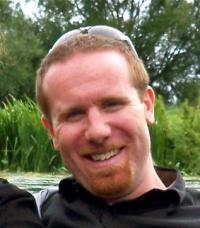
Dr. Matthew B. Sullivan is a Professor of Microbiology and Civil, Environmental and Geodetic Engineering, founding Director of OSU’s Center of Microbiome Science and co-founder of the UA Ecosystem Genomics Institute.
He is recognized for his work as a co-director of OSU’s Infectious Disease Institute Microbial Communities Program, a Gordon and Betty Moore Foundation Investigator, a Kavli Fellow, a Beckman Mentor, and a senior editor at Nature Publishing Group’s ISME Journal.
His laboratory focuses on viruses that infect microbes in their natural settings, using an experimental and informatic toolkit his team pioneered, and now applies it to the oceans, soils, humans, and extreme environments.
Specifically, the Sullivan Lab pioneered viral ecogenomics as a means to study viruses in complex communities via quantitative viral metagenomic sample-to-sequence pipelines, new approaches to link viruses and hosts, and developing iVirus, a community-available analytical platform.
Sullivan has taught a Microbiome Informatics course since 2012, and these years of experience have translated into the development of the current Microbiome Informatics Webinar Series.
Instructors
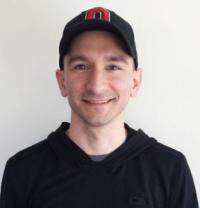
Dr. Ben Bolduc is a Research Scientist in Matthew Sullivan’s lab at the Ohio State University
Mikayla Borton

Dr. Mikayla Borton is a postdoctoral research associate at Pacific Northwest National Laboratory.
Her research focuses on understanding how microbial metabolism contributes to ecosystem processes, with a specific focus on river ecosystems.
She co-developed DRAM, a tool that automates the profiling of microbial metabolism across thousands of genomes.
Dylan Cronin

Dylan Cronin is currently a graduate student at The Ohio State University under the labs of Virginia Rich and Matthew Sullivan.
He received dual B.S. degrees in computer science and biology from Bowling Green State University, and his research currently centers around leveraging -omics data to understand the ecology of microbes and viruses in the context of climate change.
Shareef M. Dabdoub
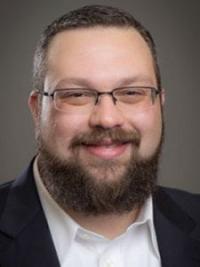
Dr. Shareef M. Dabdoub is an Assistant Professor at the Ohio State University College of Dentistry.
He is a Bioinformatician with interest in data visualization and microbial ecology of the oral environment. In particular, profiling the peri-implant microbiome in health, mucositis, and implantitis, host-microbial interactions, as well as resistance and resilience of the microbiome to environmental perturbations such as nicotine and electronic cigarettes.
He is also the developer of multiple bioinformatic software packages including PhyloToAST, kraken-biom, FIND, and ProkaryMetrics.
Webinar Q&A Liaison

Dr. Jiarong Guo earned his PhD at Michigan State University, where he majored in microbial ecology and data science.
His research interest center around understanding microbiome diversity and global nutrient cycling dynamics.
Currently, he is involved in the development of novel virus ecogenomics tools. Most recently, he led the development and release of the next-generation of a virus identification tool, VirSorter2.
Donovan Parks
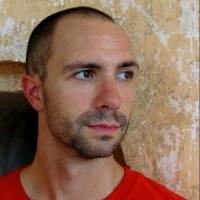
Dr. Donovan Parks holds a PhD in computer science from Dalhousie University and has developed a number of bioinformatic programs including GTDB-Tk, CheckM, STAMP, and GenGIS.
He has expertise in microbial ecology, phylogenetics, and metagenome-assembled genomes.
He is a bioinformatic consultant with the Australian Centre for Ecogenomics at the University of Queensland where he helps develop and maintain the Genome Taxonomy Database, an initiative to establish a standardized bacterial and archaeal taxonomy based on genome phylogeny.
Mike Shaffer
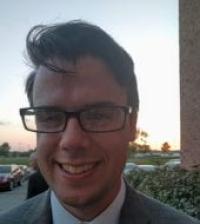
Dr. Mike Shaffer is a postdoctoral Fellow in the Wrighton lab at Colorado State University.
His research focuses on bioinformatics associated with metabolic interactions among microbes within communities.
This has resulted in the release of DRAM, a tool that enables a user-friendly and deep analysis of metagenomics data.
He also does applied research of microbial communities with a focus on the gut microbiome of humans and mouse model systems.
Olivier Zablocki
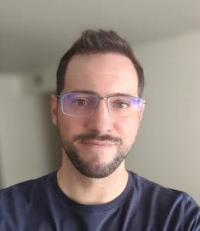
Dr. Olivier Zablocki is a Research Scientist & Coordinator in Matthew Sullivan’s lab at the Ohio State University.
His interests include soil virus ecology and long-read metagenomics.
During the webinar series, he will be presenting his research on how to generate and leverage long-read sequencing (with Oxford Nanopore) to analyze virus community data.
Ahmed A. Zayed
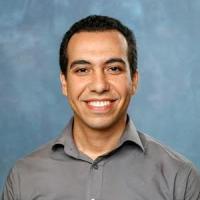
Dr. Zayed is a Postdoctoral Scholar in Dr Matthew Sullivan’s lab at the Ohio State University.
His research spans environmental, medical, and pharmaceutical microbiology, and aims at understanding the interactions happening between microbes and their environments across different ecosystems.
Employing cutting-edge bioinformatic and high-throughput tools, his research led to the discovery of hundreds of thousands of DNA/RNA viral sequences and thousands of microbes in the global ocean, human/animal bodies, and carbon-rich soils.
Dr. Zayed is also part of the leadership team of the EMERGE Biology Integration Insititute which aims at understanding microbial acclimation, assembly, and adaptation processes in complex, dynamic ecosystems.